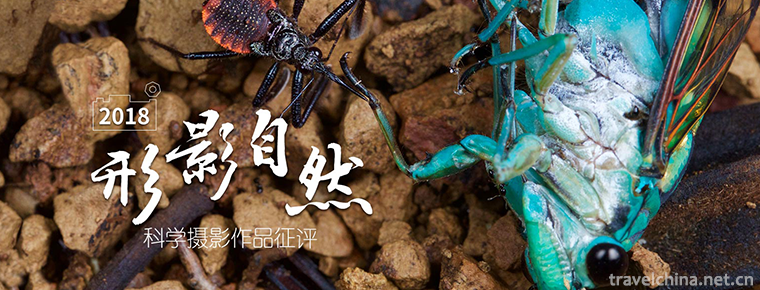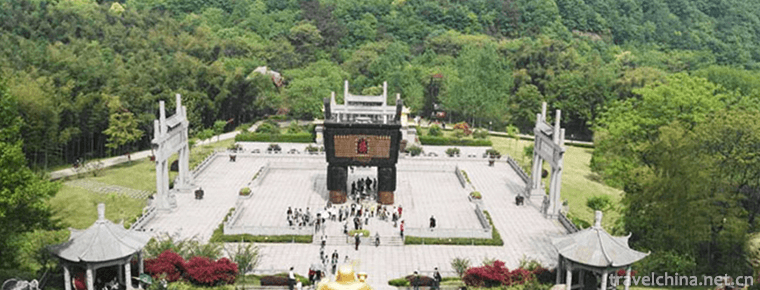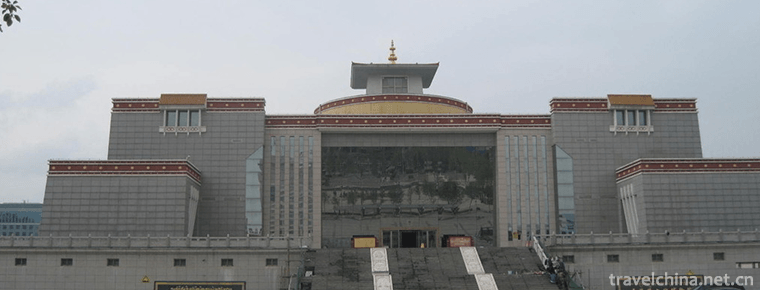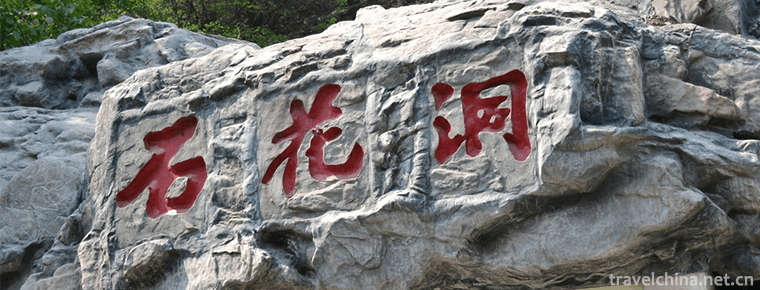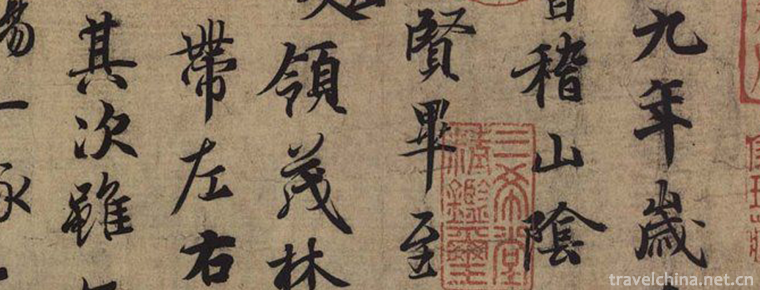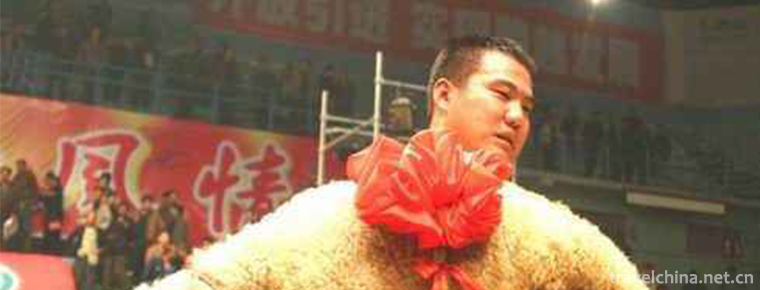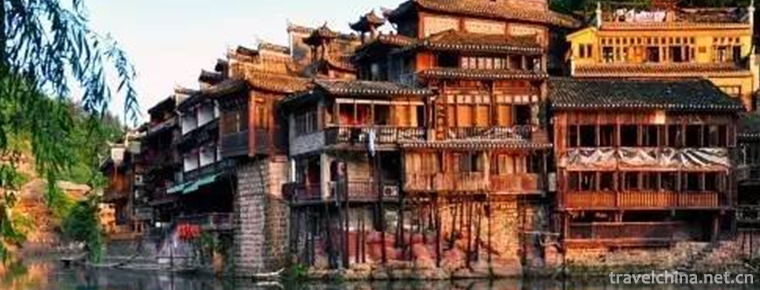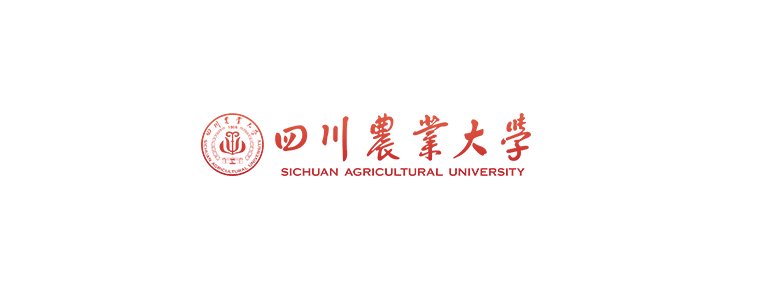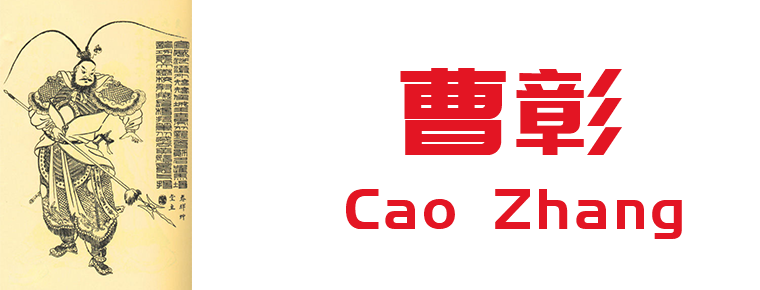Shaoxing opera
Shaoxing opera
Vietnam Opera is the second largest opera in China, known as the second national opera, also known as the "most widely circulated local opera". Some people think that it is the "largest local opera", and is called "Chinese opera" abroad. It is also one of the five major Chinese operas (Beijing Opera, Vietnam Opera, Huangmei Opera, Commentary Opera and Henan Opera in turn). Originated in Shengzhou, Zhejiang Province, originated in Shanghai, prospered throughout the country and spread throughout the world. In its development, it has absorbed the achievements of Kunqu opera, drama, Shaoxing opera and other special operas. It has experienced a historical evolution from male Yueju opera to female Yueju opera.
Yueju opera is good at lyric, mainly singing, beautiful voice, real and moving performance, beautiful and elegant, very beautiful in the south of the Yangtze River; mostly with the theme of "gifted scholars and beautiful women", there are many art schools, there are 13 recognized schools. Mainly popular in: Shanghai, Zhejiang, Jiangsu, Fujian, Jiangxi, Anhui and other vast southern areas, as well as Beijing, Tianjin and other major northern areas, in the heyday except Tibet, Guangdong, Guangxi and a few other provinces, autonomous regions, there are professional theatre troupes throughout the country.
Yueju Opera is the first national intangible cultural heritage list.
Orion of the Name
"Shaoxing Opera" originated from "singing books on the ground", and was later called "Women's Class", "Shaoxing Women's Literary Opera", "Du Class", "Grassroots Class Opera", "Small Opera Class", "Shaoxing Opera", "Shaoxing Literary Opera", "Fashionable Opera Class", "Shaoxing Opera", "Sheng Opera" and "Renju Opera". For the first time, it was called "Yueju Opera". On September 17, 1925, the "Du Ban" performed at the Small World Amusement Center was first called "Yueju Opera" in the advertisement of "Shenbao". Since 1938, most theatres and troupes have been called "Yueju Opera". However, the appellations in various opera newspapers are still not uniform. Journalists and contributors often use different appellations. In 1939, Fan Dimin, a reporter of Ta Kung Pao and director of Yao Shui-juan's "Yue Yin Stage", was inspired by Li Bai's "Yue Nu Ci", and considered that Shaoxing was the revival base of King Gou Jiansheng's gathering lessons to defeat Wu. Shengxian, the birthplace of Yue Opera, was one of the Shao genres, and Yao Shui-juan, the famous actor of Yue Opera, said, "I want to sing more and louder." The more you sing, the more you sing, the farther you go. "The heroic words touched me, so I wrote a manuscript to the Drama Daily edited by Job Xun, published an article entitled the motive and significance of"Yueju"and told the audience. Since then, the advertisements of "women's literary drama" in various newspapers have been renamed as "Yueju opera", and after the founding of New China, they have been called "Yueju opera".
Since Shaoxing Opera and Shaoxing Wen Opera were used as names in the early stage of Yueju Opera, the saying that Yueju Opera was called "Shaoxing Opera" was borrowed from "Shaoxing Opera" because there was no name of "Yueju Opera", but "Yueju Opera" was not actually "Shaoxing Opera". However, due to errors, the word "Shaoxing Opera" has also been used in the translation of the title of Yueju Opera. However, the translation of the title of "YueJu Opera" should be "Yue Opera", which has been widely used in professional books and official documents of "YueJu Opera", and accepted and used by newspapers and magazines. The mistaken version of "Shaoxing Opera" on that day has become a history.
Historical Evolution
Pregnant Period: Singing on the Ground
In 1852, Jin Qibi, a peasant from Matang Village, Xixiang, Shengxian County, created "singing on the ground". Ground singing is a popular form of rap in Shengxian County, Zhejiang Province, mainly in Matang Village. It began to evolve into a form of opera performed on grass-roots stage in rural areas. The artists were initially male farmers who were half-agricultural and half-artistic, so they were called male classes.
Xiaosong Class
On March 27, 1906, in front of the incense Hall of Dongwang Village, Shengxian County, four rice barrels were borrowed by the landing calligraphers Yuan Fusheng, Li Maozheng, Gao Binghuo and Li Shiquan to pave the doorboard and perform the minor operas Ten Heads, Ni Feng Fan Cha and the grand opera Double Golden Flowers (the latter half). This is the first stage audition of Chinese Yueju Opera. Yueju Opera (originally known as "Little Opera Class") was born, which is called the Birth Day of Yueju Opera.
On May 13, 1917, Xiaoge Class first entered Shanghai and performed in Xinhua Garden in Shipu. Because of its rough and crude art, the audience was very few. Three subsequent classes of artists came to Shanghai but failed. After learning the performing skills of Shaoxing Grand Class and Peking Opera, the art has been improved. In 1919, the Xiaoge Class began to gain a foothold in Shanghai.
Since 1920, the small Song troupe has concentrated on well-known actors to produce new plays, such as Liang Shanbo and Zhu Yingtai, Jasper Hammer and Meng Lijun. These plays adapted to the rising trend of thought of striving for women's rights and equality between men and women after the May 4th Movement and were welcomed by the audience. After that, Zhou Linzhi, the stage owner of Shengping Song, invited three musicians from Shengxian folk music organization "Dramatist Class" to form the first professional accompaniment Orchestra in the history of Vietnam Opera. When playing, they set the tune with 15 two tones and followed the Shaoxing big class custom, called "Zhenggong Tune", or "Sine Tune", which has become the main tune since then. Shaoxing big class's slab style has initially established the music frame of slab cavity.
Shaoxing Literary Opera
On September 16, 1921, the theatre troupe composed of Fei Cuitang and Yan Huantang performed in the First Theater. On that day, the advertisement of Newspaper first published the name of Shaoxing Wenxi Opera.
From September 1921 to 1922, male class artists changed the name of opera to "Shaoxing Wen Opera" one after another. They absorbed the performance programs of Peking Opera and Shaoxing Opera and developed to the grand costume opera. The repertoire is influenced by Shanghai-style Peking Opera. It mainly produces Liantanben Opera and performs in playgrounds such as "Big World" and "New World", as well as in teahouses, hotels and small theatres. The main actors are Xiaosheng Wang Yongchun, Zhi Weiyong, Xiaodan Wei Meiduo, Baiyumei, Jin Xuefang, Laosheng Ma Chaoshui, clown Ma Ashun, Damian Jinrongshui, etc.
In July 1923, Wang Jinshui, a businessman from Shengxian County, invited Jin Rongshui, a male class artist, to return home to run the first female class, which recruited more than 20 girls under the age of 13. On January 14, the next year, the female class performed on the Shanghai Shengping Song Stage, known as the "Fashion Children's Xiaosong Class".
Women's Yueju Opera before Liberation
On September 17, 1925, the performance advertisement of Shanghai Shenbao was first called "Yueju Opera".
Since January 1928, female classes have flocked to Shanghai. By the second half of 1941, it had increased to 36. Almost all the famous actors of women's Yueju Opera gathered in Shanghai. The newspaper commented that "the women's drama in Shanghai has been popular for a while, but recently it has overtaken everything". The male class was eventually replaced by the female class because there were no successors.
In 1929, Shengxian held the second women's class, which was held after that.
Since the end of 1931, some actresses, such as Wang Xinghua, Chen Miaoxian, Lu Fuzhu and "Dongan Stage" and "Four Seasons Spring Class" have appeared in Shanghai, but they are still mixed performances for men and women. After women's Yueju was established in Shanghai, in order to meet the needs of the environment and audiences, a group of practitioners of Yuejuan, represented by Yao Shuijuan, made changes, which were called "improved literary drama". Each troupe and class are competing to compile new plays. During the four years from 1928 to 1932, more than 400 new plays were produced, with a wide range of themes, styles and styles. Most of the writers had engaged in "Civilized Drama". The repertoire generally adopted the curtain system. At that time, the main writers were Fanfence, Wen Zhong, Hu Zhifei, Tao Xian, Liu Tao and so on. The diversification of the content of the repertoire causes the corresponding changes in the form of performance, and the trend of learning from the brothers'plays appears. At that time, some Peking Operas of the school of learning from the sea, such as Shang Fangchen's famous play "Hate at the End of Ming Dynasty"; others learned to apply for music, such as Shi Yinhua and Tu Xinghua's transplantation to stage a suit cheongsam opera "Thunderstorm"; others learned movies and dramas, such as Yao Shuijuan's performance of "Jiang Lao's Five Martyrs" and "Big Family", using realistic scenery and rickshaw to stage. 。 In terms of business methods, feudal stereotypes have been broken down, and managerial system has been implemented, with unified management of the front and back office. During this period, the most famous actors Danjiao was Shi Yinhua, Zhao Ruihua, Wang Xinghua, Yao Shuijuan, Xiao Dangui, and the younger actors such as Yuan Xuefeng, Yin Guifang, Fan Ruijuan, Fu Quanxiang and Xu Yulan were all emerging.
Since 1938, most theatres and troupes have been called "Yueju Opera".
In October 1942, Yuan Xuefen took the drama as an example and began to reform the Dalai Theater. In the past two years, Yu Yin (Yao Luding), Han Yi, Lan Ming (Liu), Xiao Zhang, Lu Zhong, Nanwei, Xu Jin and so on have been hired as directors. Most of them are young amateur dramatists. They call the reformed Yueju Opera "New Yueju Opera".
In September 1944, Yin Guifang and Zhushuizhao also reformed Longmen Theatre. Since then, Shanghai's major Yueju troupes have been involved in the ranks of "New Yueju Opera", and the appearance of Yueju Opera has changed greatly in a few years. The reform of Yueju Opera begins with the compilation of new plays, the establishment of script system and the abolition of the curtain system. Even performing traditional plays, they have been reorganized and adapted. The content of the new play has changed a lot compared with the past. Many directors and actors attach great importance to the social benefits of the plays, advocate positive and beneficial influence on the audience, and compose a large number of plays against feudalism, revealing social darkness and promoting patriotism.
In November 1943, when performing Xiangfei, Yuan Xuefen cooperated with Zhou Baocai, a pianist, to make the previous 2.5-chord singing more standardized. From then on, he began to make the ruler tune form a number of slabs, some of which are scattered, some of which are fast and some of which are slow. Later, he developed all kinds of counter-tunes of slab tunes, which not only improved the slab structure of Yueju opera singing. It also enhances the lyricism and dramaticity of the tunes, and enlarges the expressiveness and plasticity.
On January 29, 1945, Yuan Xuefen and Fan Ruijuan performed The History of Liang Zhumourning at Jiuxing Grand Theater and reorganized the repertoire with the director. During the performance, Fan Ruijuan cooperated with pianist Zhou Baocai to create a "subchord tune". The ruler tuning cavity and the subchord cavity laid the foundation for the emergence of the Yueju school.
In May 1946, the Xuesheng Opera Troupe adapted Lu Xun's novel "Blessing" into "Sister Xianglin", which aroused the attention of the underground organizations of the Communist Party of China to the Yueju Opera and the whole local opera. In September, Zhou Enlai watched the performance of the Snow Sound Opera Troupe in Shanghai. He also directed and deployed how the underground organizations of the Communist Party of China could do a good job in local opera circles. Qian Yingyu and Liu Housheng, members of the Communist Party of China, were assigned to the Yue opera circle as directors. Later, the progressives in Shanghai's literary and art circles and the press jointly performed Shan He Love and the struggle for Xiao Dan Gui's revenge by the "ten sisters of Yue Opera" (Yuan Xuefen, Yin Guifang, Xiao Dangui, Fan Ruijuan, Fu Quanxiang, Xu Yulan, Zhushuizhao, Zhang Guifeng, Xu Tianhong and Wu Xiaolou). Support was given.
Development and Glory after Liberation
Shanghai was liberated in May 1949. On April 12, 1950, the first national theatre troupe in Shanghai, the experimental theatre troupe of East China Vietnam Opera, was established.
Shanghai Yue Theatre was officially established on March 24, 1955. The theatre gathered a large number of highly artistic talents such as editors, directors, directors, audiences and the United States. Under the guidance of the CPC's literary and artistic orientation of serving the people and socialism and the policy of "letting a hundred flowers blossom, weeding out the old and bringing forth the new", it played a demonstration role in the national theatre. In addition, a number of collectively owned theatre troupes, such as Fanghua, Yunhua, cooperation and youth, are also very active, and have achieved a lot in their performances.
In March 1951, the East China Opera Research Institute was established, and the Zhejiang Yueju Troupe was formally established in 1954. During this period, more than thirty professional Yueju troupes in Shanghai and seventy professional Yueju troupes in Zhejiang also carried out the work of changing people, operas and systems to varying degrees.
On June 25, 1950, when the Korean War broke out, Fan Ruijuan proposed that the Shanghai Vietnam Opera Circle donate a fighter plane to the Chinese Volunteer Army for Anti-American and Aid Korea. From August 10 to mid-September, a joint charity performance was held at the Mass Theatre. The performances include "Xinghua Village", "History of Liang Zhu'ai" and traditional operas. The older generation of artists in Yueju Opera donated 170,000 yuan from the performance to the Air Force Department of the Volunteer Army, which led to the birth of the "Yueju number - Luxun fighter plane".
On National Day in 1951, Fan Ruijuan was elected a member of the National Youth Federation in Beijing and an invited representative of the CPPCC. During the CPPCC National Committee meeting, Chairman Mao Zedong cordially met Fan Ruijuan and talked. The Shanghai Vietnam Opera Circle's action was praised by a letter from the Shanghai Literature and Art Circle's Anti-American and Aid North Korea Support Association.
On April 24, 1953, Xu Yulan and Wang Wenjuan's General Administration and Vietnam Opera Troupe crossed the Yalu River and came to the volunteer army of anti-American and aid Korea. He performed in the 64, 36 and 34 armies, and assisted in the repatriation of prisoners of war in Panmunjom. On behalf of the Central Committee of the Korean Labor Party, Kim Il Sung awarded Xu Yulan and Wang Wenjuan three-level national flag medals of the Democratic Republic of Korea, and the headquarters of the Volunteer Army gave Xu Yulan and Wang Wenjuan second-class merits.
At the end of 1953, the first color opera art film of New China, Liang Shanbo and Zhu Yingtai, became popular and set box office records in Hong Kong. During the Geneva Conference, this film was repeatedly used by Zhou Enlai to entertain politicians and journalists of various countries and was praised as "Romeo and Juliet of the East". International public opinion's suspicion of the development of red traditional Chinese culture is thus iced out. The world-renowned Violin Concerto "Liang Zhu" also originated from the singing tune of Yueju Opera. The film Liang Shanbo and Zhu Yingtai has expanded the influence of Yueju Opera at home and abroad, and won a hit.
In May 1960, Guan Sen, composer of Shanghai Yueju Theatre, wrote a draft of "Research on the Singing of Yueju Opera", in which he analyzed the singing characteristics of 6 people (Yin Guifang has been transferred to Fujian but not included) such as Yuan Xuefen, Fan Ruijuan, Fu Quanxiang, Xu Yulan, Qi Yaxian and Lu Jinhua, which are called "genres". In April 1962, the manuscript was duplicated as "Opera Music Lectures" by the Department of Opera and Literature of Shanghai Theatre Academy and circulated among the peers. After that, Zhou Dafeng of Zhejiang Yueju Opera Troupe made a more in-depth study and Discussion on the singing tunes of Yuan Xuefen, Fan Ruijuan, Fu Quanxiang, Xu Yulan, Yin Haofang and Qi Yaxian. He wrote a draft of "Yueju School of Songs", which was copied and published by Zhejiang People's Publishing House in 1981.
In 1962, the film A Dream of Red Mansions, produced by Shanghai Yan Film Studio and Hong Kong Golden Sound Film Company, made 200 million box office tickets around 80 years ago (at that time, the ticket price was about 20 cents). 1.2 billion people watched it, which is unprecedented . Since then, a song "Sister Lin Falling from the Sky" has been sung in the north and south of the Yangtze River.
In 1964, Zhejiang opera music experts, He Renzhong, Lu Bingrong, Zhou Dafeng and Chen Xianyu, announced that there are four schools of Yueju Opera in Zhejiang Province: Chen Peiqing School, Mao Peiqing School and Jinbaohua School. Gao Aijuan School and Zhou Dafeng founded the basic male tune in the male and female co-productions of Zhejiang School Yueju Opera.
During the golden period of Yueju Opera in the 1950s and early 1960s, a number of influential works of art were created, such as Liang Shanbo and Zhu Yingtai, The Story of the West Chamber, A Dream of Red Mansions, Xianglin Sister, etc. They have gained great fame at home and abroad, such as Emotional Exploration, Biography of Li Wa, Chun Xiangzhuan, Jade Hang and Kong. Among them, "Liang Shanbo and Zhu Yingtai", "Love Detection", "Chasing Fish", "Jade Hammer" and "Dream of Red Mansions" have also been filmed, making Yueju opera more popular in the north and south of the Yangtze River. With the development of socialist construction, Yueju opera began to move from Shanghai to the whole country. By the early 1960s, Yueju Opera had spread to more than 20 provinces and cities, and its influence was expanding day by day.
The Cultural Revolution was at a low ebb
Since the "Cultural Revolution" in 1966, Yueju Opera has been severely devastated. A group of famous actors, creators and management cadres were persecuted, and Yueju opera was forced to stop playing.
Revival of Yueju Opera after the Cultural Revolution
After the Cultural Revolution, Yueju opera was revived. In 1977, 1978 and 1981, Yueju Opera created and performed the "Soul of Loyalty", "March Spring Trend" and "Lu Xun in Guangzhou" co-starring by men and women, which created the images of Mao Zedong, Zhou Enlai and Lu Xun in modern history. The Yue Opera Troupe at the district level, which was forced to disintegrate during the Cultural Revolution, was partly rebuilt and artistic activities resumed.
At the beginning of the reform and opening-up in 1980, the national professional theatre circle resumed the award system for the first time. With the transition from planned economy to market economy, Zhejiang Yueju circle started a boom of small flowers around 84 years ago. The young Yueju actors in Shanghai Yueju circle also stood out in various radio, television competitions and Shanghai Youth Actors'Meeting. Out. Li Huikang, a critic of Yueju Opera, published the article "Reshaping the Image of Yueju Opera in Shanghai" in Shanghai Culture and Art Daily on March 9, 1990. After this article was published, it aroused a warm response in the theatrical circles and the press in Shanghai, Zhejiang, Jiangsu and even Beijing. Shanghai Culture and Art Daily has a special column for this purpose, and has selected and distributed articles from all over the country for discussion. Shanghai, Zhejiang and Vietnam theatre circles also jointly held large-scale seminars for this purpose, which played a considerable role in the handover of old and new Vietnamese operas. A prominent feature of Yueju Opera in the new period of reform and opening-up is that its artistic ideas are more liberated and its artistic concepts are more open. In the creative performance, the theme and style are more diversified, and the second creation is more committed to absorbing the achievements of modern art and making bold exploration.
On the morning of March 27, 2006, Hangzhou held the 100th anniversary congress of the birth of Chinese Yueju opera, which officially opened the prelude to the centenary commemoration of Yueju opera. The celebrations also included the unveiling ceremony of the Centennial monument of Yueju Opera and the founding ceremony of Zhejiang Xiaobaihua Art Center; the Centennial Summit Forum of Chinese Yueju Opera; entertainment performances of high-quality operas and some excellent performances; series activities of "Yueju Centennial Hometown Travel", "Yueju Centennial" and "playback of classic Yueju movies"; Centuries of mass cultural activities. The celebration lasted until the "Chinese Vietnam Opera Festival" held in Shaoxing in October. During this period, Zhejiang Xiaobaihua Yue Opera Troupe and Shaoxing Xiaobaihua Yue Opera Troupe presented classic plays.
On May 20, 2006, Yueju Opera was approved by the State Council to be included in the first batch of national intangible cultural heritage lists.
On July 24, 2006, the Vietnam Opera Young Actors TV Challenge Competition, co-sponsored by CCTV and Shanghai Wenguang News and Media Group, opened on the Yifu Stage in Shanghai. The event is divided into three major competition areas: Shanghai, Hangzhou and Shaoxing.
go to the world arena
Vietnam Opera, which is known as "Chinese Opera" in foreign countries, has won a great reputation in the international arena while influencing the whole country.
The first large-scale color opera film produced in 1953 after the founding of New China, Liang Shanbo and Zhu Yingtai, was directed by Premier Zhou Enlai to be shown by the Information Office of the Chinese delegation during the Geneva Conference, reversing the prevailing "Communist Party does not want culture" theory in the Western world at that time.
In the spring of 1953, Xu Yulan and Wang Wenjuan participated in the Cultural Work Team of the Political Department of the People's Volunteer Army Armistice Negotiation Delegation. They performed for the children and soldiers of the two peoples and exchanged prisoners of war. They were awarded the third-level national flag medal by the Korean Labor Party and the second-class military medal by the Volunteer Army Command.
On June 19, 1955, the Chinese Vietnam Opera Troupe, composed of Shanghai Vietnam Theatre, visited and performed in the German Democratic Republic. From July 2 of the same year, in Berlin, Dresden and other places, the Prime Minister of the German Democratic Republic, Grotivo, watched the performance of "The West Chamber" and came on stage to meet the acting staff. On July 24, he performed for the Soviet Army in Germany. On July 30, he left Berlin to visit the Soviet Union. The Chinese Vietnam Opera Troupe performed in Minsk and Moscow of the Soviet Union. On August 15, Soviet party and state leaders Voloshilov, Kaganovic, Malinkov, Migoyan and Berushin watched the performance of Liang Zhu. After watching it, they met comrades of the troupe in the theatre lounge. Voloshilov also handed out bouquets of flowers to comrades of the troupe who were interviewed. On September 9, after Moscow's performance of The West Chamber, the Soviet Union filmed a "stunning" film. On September 10, he left New Siberia and returned home. The performances of the Chinese Vietnam Opera Troupe to the Democratic Germany and the Soviet Union further broadened the artistic horizon of Europeans'understanding of the richness of Chinese drama. The literary and artistic circles of the Democratic Germany and the Soviet Union praised the Romance of the West Chamber and Liang Shanbo and Zhu Yingtai as "beautiful and quiet poems full of people's character". Soviet drama critic Hu Po-fu published a commentary on "Poems of Love" in Pravda, praising that Chinese Yueju opera "can abandon many outdated, stale and stagnating things of national drama, and preserve the fine, long-standing and vigorous transmission of the people's culture permeated with the true democratic spirit." Tong... In Vietnam Opera, it has gained new significance and new development, and said that "The Story of the West Chamber" is "true music, aesthetic feeling... The inner melody is fascinating. Kabalevsky, a theatre critic, wrote a commentary on "The Spring of Ancient Culture" in Pravda, praising Yueju opera for "combining the richest and longest tradition of classical opera with the realism of modern theatre creation, cherishing and developing its own national form". A Tass news agency said that the audience praised "Liang Shanbo and Zhu Yingtai" as "Romeo and Juliet of China". A German writer published an article in the Evening News saying, "Although people don't know the language, they can understand everything. It can make people feel great joy and infinite grief in their hearts at a moment when they can't be separated. What a masterpiece of art is this?" I have seen the perfect art, it is so simple and true, like the mirror of human soul.
From February 17 to April 3, 1959, according to the Sino-Vietnamese Cultural Cooperation Agreement, the Chinese Vietnamese Opera Troupe, which was organized by the Shanghai Vietnam Theatre, visited the Democratic Republic of Vietnam to perform. In Hanoi, Haifang and other nine provinces and municipalities, 28 performances were performed, with more than 200,000 audiences.
In 1959 and 1961, Shanghai Vietnam Theatre visited the Democratic Republic of Vietnam and the Democratic People's Republic of Korea respectively. Since the early 1960s, Shanghai Yue Theatre, Luwan Yue Opera Troupe and Jing'an Yue Opera Troupe have also performed in Hong Kong and Macao for many times, which has been warmly welcomed by compatriots in Hong Kong and Macao. Shanghai Yue Theatre has also been to Singapore, Thailand, Hong Kong, Taiwan and other countries and regions for cultural exchange performances.
From December 23, 1960 to January 26, 1961, the Shanghai Yue Theatre, in the name of the Shanghai Yue Opera Troupe, first went to Hong Kong to perform.
On July 14, 1961, hosted by the Zhejiang Provincial Committee of the Communist Party of China, Dream of Red Mansions by the Shanghai Yue Theatre hosted a delegation of the DPRK party and government headed by Kim Il at the Hangzhou Hotel. Premier Zhou Enlai accompanied the delegation and met with Xu Yulan and Wang Wenjuan. President Kim Il Sung invited the play to visit North Korea. On August 17, hosted by the Foreign Affairs Office of the Shanghai Municipal Party Committee, Xu Yulan, the Shanghai Yue Theatre, hosted the reception of Ghana's President Nkrumah at the Friendship Cinema. From September 8 to October 18, at the invitation of Prime Minister Kim Il Sung, the Shanghai Vietnam Theater Troupe II visited the Democratic People's Republic of Korea in the name of "China Shanghai Vietnam Opera Troupe". Zhu Guang was the head of the delegation, Yuan Xuefen was the deputy head of the delegation, and Zhang Li was the secretary-general. Among them, "A Dream of Red Mansions" performed in celebration of the Fourth Congress of the Korean Labor Party. Kim Il Sung, Choi Yong-jian and other DPRK party and government leaders, the delegation of the CPC Central Committee headed by Deng Xiaoping and the delegation of the CPC Central Committee headed by Kozlov watched the performance. In late October, when the Shanghai Vietnam Opera Troupe returned from its performance in Korea, Premier Zhou Enlai received the whole troupe in the Great Hall of the People. Together with Qi Yanming and Wang Kunlun, he accompanied the comrades of the theatre troupe to visit the site of the Gongwang Palace of the Qing Dynasty in Beijing. Liu Shaoqi and Premier Zhou watched the performance and went on stage to meet the acting staff for a group photo.
From the end of December 1962 to the middle of January 1963, Xu Ping-yu, Vice Minister of Culture, led Xu Yulan and Wang Wenjuan of Shanghai Yue Theatre to the Democratic People's Republic of Korea to give guidance to the rehearsal of the Korean opera Dream of Red Mansions. Kim Il Sung met with Xu Pingyu, Xu Yulan and Wang Wenjuan at the Prime Minister's Palace and took a group photo as a souvenir.
On October 7, 1964, hosted by Shanghai Foreign Affairs Office, the Vietnamese Party and Government delegation led by Premier Fan Wentong was hosted at the Friendship Cinema by Shanghai Vietnam Theatre, which performed "Dajin Zhi" (starring Lv Ruiying, Chen Shaochun, etc.) and "Mother and Son Club" (starring Xu Yulan and Zhou Baokui). On October 10, 97 members of the second group of Shanghai Yue Theatre participated in the socialist education movement in Jinshan County. Wu Chen, Xu Yulan and Wang Wenjuan all participated for 8 months.
In 1983, young actors from Shanghai Yue Theatre performed "A Dream of Red Mansions" in Japan.
In 1986, Shanghai Vietnam Theatre went to Paris to perform at the Paris Autumn Art Festival.
In May 1989, a group of artists from Shanghai Vietnam Theatre visited the United States to perform. They were warmly welcomed and highly appraised by the people of all countries and overseas Chinese.
In 1990, Lv Ruiying, Fan Ruijuan, Zhang Guifeng and others, with the Chinese National Art Delegation, went to the Federal Republic of Germany, France, the Netherlands, Belgium, Luxembourg and other countries to perform.
In 1994, Lv Ruiying was awarded "Asia's Most Outstanding Artist Award" by the American Art Association of New York, USA.
On August 17, 2001, Shaoxing Xiaobaihua Yue Opera Troupe went to Thailand to participate in the performance of "Asian Folk Drama Festival". It performed two excellent traditional plays of Yue Opera "Liang Shanbo and Zhu Yingtai" in the Thai Cultural Center. It was praised by Thai audiences and overseas friends and was called "the beauty of opera, actors, singing and music". 。 Applause continued in the theatre, and after watching the first show, many audiences rushed to buy tickets for the second one. After watching the performance, Mr. Qin Yusen, Cultural Counselor of the Chinese Embassy in Thailand, said happily, "Shaoxing Xiaobaihua performance is wonderful and touching. It fully embodies the charm of Chinese excellent culture and Yueju opera and plays a good role in promoting cultural exchanges between China and Thailand."
On March 21, 2002, Shaoxing Xiaobaihua Yue Opera Troupe went to Singapore to perform. The repertoire included "Save Mother by Diving Hills", "Cat for Prince", "Dou Wenlong" and so on. The performance, which lasted for more than ten days, was warmly welcomed by the Singapore audience.
In addition, Zhejiang Vietnam Opera Troupe is well-known in Britain, France, Malaysia, Singapore, Thailand and Japan. During the performance in Finland, Europeans were intoxicated by a song "Butterfly Lover" (Liang Shanbo and Chu Ying Tai), which caused the wife of the President of Finland to weep. From Los Angeles, San Francisco to New York, Zhejiang Xiaobaihua Yue Opera Troupe went to the United States for commercial performances. They used their perfect art to set off a dazzling "Little Baihua Tornado". Major media have reported, "The International Daily" said: "This theatre troupe, which enjoys a high reputation in China, does not know what the audience will react to before its performance, but the warm applause that accompanied the final show shows that American audiences and Chinese people not only understand the play, but also for the plot and the exquisite actors. The performance was deeply touched.

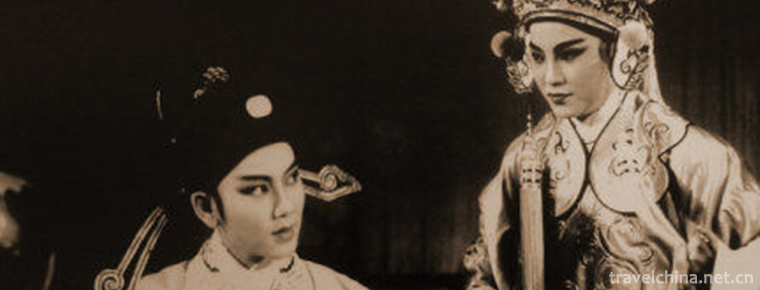
-
Beijing Museum of Natural History
The Beijing Museum of Natural History is located in the overpass area on the central axis of the capital's southern city. It is backed by the Tiantan Park, a world cultural heritage.
Views: 130 Time 2018-12-15 -
Malenqi Peak Forest Tourist Area
Located at the junction of Tongling, Nanling and Fanchang counties on the South Bank of the Yangtze River, Maren Qifeng scenic spot is located in the middle of the southern Anhui tourism belt.
Views: 202 Time 2019-02-06 -
Qinghai Tibetan Medicine Culture Museum
Qinghai Tibetan Medicine and Culture Museum was built in 2006, with a total construction area of 12,000 square meters. It is the only comprehensive museum reflecting.
Views: 178 Time 2019-02-07 -
Shihuadong National Geological Park
Beijing Shihuadong National Geopark is located in Cheying Village, Nancheng Town, Hebei Province, Fangshan District, Beijing. It is a seven-storey karst cave 55 kilometers away from Beijing.
Views: 131 Time 2019-02-08 -
Chinese character calligraphy
Chinese character calligraphy has been recognized by the world for its brilliant civilization of 5000 years and its incomparable rich written records. In this vast and profound history,.
Views: 192 Time 2019-05-02 -
Scratch sheep race
The Naoyang Competition is a traditional Chinese folk custom activity mainly in Xinzhou City, Shanxi Province. It's a wrestling competition with a live sheep as a prize. In the countryside, "scra.
Views: 109 Time 2019-06-07 -
Construction Techniques of Tujia Diaojiao Building
Tujia hanging-feet building construction skills, Hubei Xianfeng County, Hunan Yongshun County, Chongqing Shizhu Tujia Autonomous County, local traditional skills, one of the national intangible cultur.
Views: 145 Time 2019-06-23 -
Sichuan Agricultural University
Sichuan Agricultural University is a national "211 Project" with the characteristics of biotechnology, the advantages of agricultural science and technology, and the coordinated development .
Views: 400 Time 2019-08-31 -
Cao Zhang
Cao Zhang (189 years - 223 August 1st), Zi Zi Wen. Pei Guo Qiao County ( Anhui People in Bozhou. Three countries period the Wei state of the Three-Kingdoms Period Imperial clan, general, Wei Wu Di Cao.
Views: 157 Time 2019-09-15 -
Zhuokeji chieftains official village
Zhuokeji chieftain's village is located in xisuo village, zhuokeji Town, 7 km away from malkang county. The village was built in 1718 in the reign of Emperor Qianlong of the Qing Dynasty. It was a four story blockhouse. It was destroyed in the fire in 1936. From 1938 to 1940, the Tusi Suo Guanying organized human resources to rebuild it..
Views: 295 Time 2020-11-07 -
Neijiang population
By the end of 2019, the total population of Neijiang's household registration was 4 million 81 thousand and 800, a decrease of 35 thousand and 900 from the end of last year, of which 2 million 103 thousand and 400 were male and 19 thousand were reduced.
Views: 347 Time 2020-12-16 -
Administrative division of Yibin
Yibin City has 10 county-level administrative divisions (Municipal District 3, county 7), 136 township level administrative divisions (street 14, town 105, township 17). It covers an area of 13271 square kilometers and has a population of 5.52 million. Yibin Municipal.
Views: 319 Time 2020-12-18
